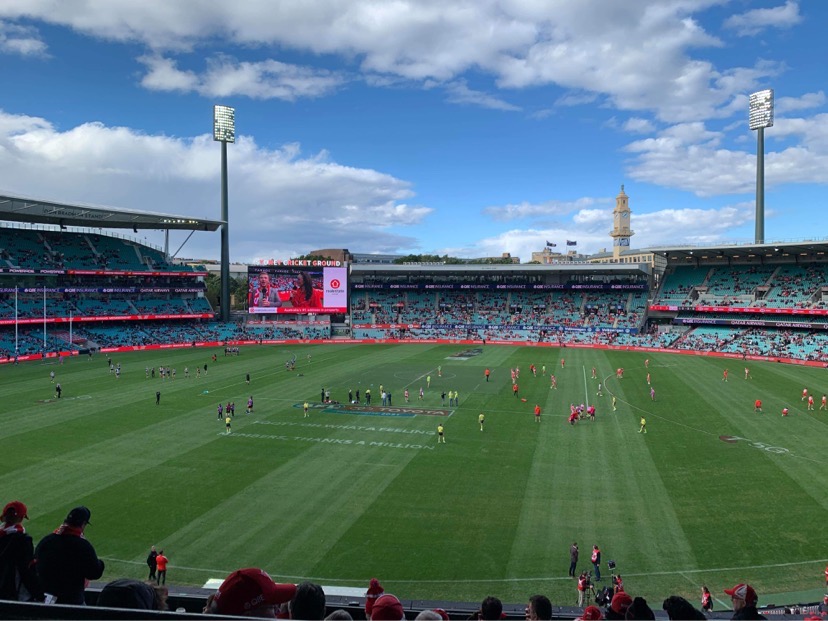In this article, we’ll help you understand the duration of an AFL match, including its quarters, breaks, and the factors that can influence the length of the game.
How long does the AFL game go on for?
Typically, an AFL game goes on for 80 minutes in total. This is split into 4 quarters, each being 20 minutes long.
Unlike other sports such as football (soccer), the AFL clock does pause, so it’s likely a game will extend beyond 80 minutes, depending on what happens during the game.
What can influence the length of a game?
There are a few key areas that influence the length of an AFL game, these include:
The number of stoppages
The more stoppages that occur during a game, the longer it will last. Factors like frequent out-of-bounds, injuries, and deliberate tactics by teams to slow down the game can all contribute to additional stoppages and extend the length of the match.
How often teams are scoring
Scoring plays a significant role in game length. If both teams are scoring heavily, it can result in more time being added due to the clock being stopped for goal celebrations and the center bounce following a goal.
Conversely, if a game is low-scoring, there may be fewer stoppages, and the match could finish closer to the expected 80-minute mark.
However, as there are often above 70 points per game on average, it’s very likely a game will exceed the 80 minute mark.
The style of the game
Different teams play with varying styles and tactics. Some teams focus on a fast-paced, attacking game, while others might play a little more defensive, there are a number of styles that can impact how a game is played, impacting the time the ball is out of play.
The style of play employed by the teams on any given day can have a considerable impact on the game’s duration.
The weather conditions
Weather conditions can also influence the length of an AFL game. Wet and slippery conditions can lead to more stoppages and a slower-paced game, while dry and windy conditions may result in a faster, more free-flowing match.
As AFL is played between March and September, it usually has winter conditions, which can often be sunny but slightly colder. However, as the game is played across New South Wales, Western Australia, Queensland, and Victoria, this can change a lot.
Umpiring decisions
Umpiring decisions can occasionally lead to delays and disputes on the field. Controversial decisions may result in players and coaches taking time to voice their concerns or seek clarification from the umpires, leading to additional stoppages.
These include reviewing kicks behind the goal which may require a decision change, off the ball incidents etc.
Overtime
In rare instances, when scores are tied at the end of the fourth quarter in important matches, such as finals, extra time or “overtime” periods may be played. These additional periods are typically five minutes each, with the first team to score winning the game. Overtime periods can extend the overall length of the match significantly.

